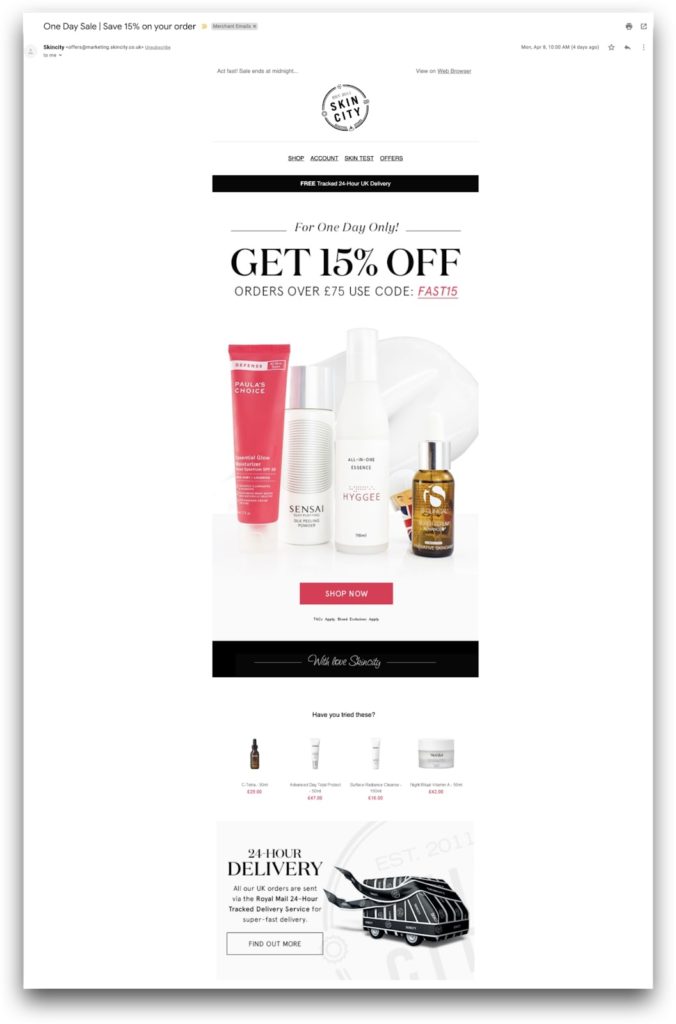Do you know one of the easiest ways to tell if your eCommerce business has grown over the years or not? It is to look at your “Average Order Value”. Along with profit margin, customer acquisition cost and conversion rate, AOV should also be a key performance indicator that you should be tracking.
In simple words – It’s not just important to see who is buying what. It is also important to see if the same person trusts you enough to buy more and more from you.
This is a basic concept in the world of eCommerce and is most often ignored. Let us break it down for you.
What is Average Order Value in eCommerce?
Average Order Value (AOV) in eCommerce is the average amount of money customers are spending on each purchase made through your eCommerce platform.
It is a key metric that helps businesses understand the purchasing patterns and behaviours of their customers.
What is the Average Order value formula?
To calculate Average Order Value (AOV) in eCommerce, you need two key pieces of information: the total revenue generated and the total number of orders.
The formula for calculating AOV is:
AOV = Total Revenue / Total Number of Orders
Here’s a step-by-step guide on how to calculate AOV:
- Determine a specific time period: Decide on the time period for which you want to calculate the AOV. It could be a day, week, month, quarter, or year, depending on your preference and the level of detail you require.
- Gather the total revenue: Sum up the total revenue generated during the chosen time period. This includes all sales, excluding taxes, shipping costs, or any other additional charges.
- Count the total number of orders: Determine the total number of orders placed within the selected time period. Each completed transaction counts as a separate order, regardless of the number of items or services purchased in each order.
- Calculate the AOV: Divide the total revenue by the total number of orders. The resulting value will be your Average Order Value.
For example, let’s say you want to calculate the AOV for the month of January. During that month, your total revenue was ₹10,000, and you had 200 orders. Using the formula:
AOV = 10,000 / 200 AOV = ₹50
In this case, your Average Order Value for January would be ₹50.
Remember to recalculate the AOV regularly to track changes over time and evaluate the effectiveness of your strategies aimed at increasing AOV. Your target should be to slowly increase this AOV value.
The importance of Average Order Value in maximising eCommerce profits
Understanding and keeping track of your AOV from early on gives you certain advantages in the game. Some of these benefits are:
Revenue growth
As your AOV grows, so will your revenue.
By encouraging customers to spend more per transaction, your online business can generate more sales without necessarily acquiring new customers.
This means more money is flowing into the business, driving overall growth and profitability.
Related read: Retention Marketing: The Secret Sauce for Repeat Customers
Cost optimization
Increasing AOV can help offset the costs associated with acquiring new customers.
Our co-founder Ankur Sharma, in his chat with Blissclub Chief Revenue Officer – Soumen Samanta highlight the biggest pain point for D2C brand owners today – Customer acquisition costs (CAC).
These can be substantial, including marketing expenses, advertising campaigns, and sales efforts. But if your AOV increases, your business gets more resources to work with for marketing and acquisition investments.
Not only that, you understand customer behaviour and you can implement marketing strategies more efficiently.
Enhanced Customer Lifetime Value (CLV)
AOV is closely related to Customer Lifetime Value (CLV), which represents the total value a customer brings to a business over their entire relationship. Here is a guide by Mezchip on customer lifetime value.

By increasing AOV, businesses can also increase CLV. When customers spend more per transaction, they contribute more to the business’s long-term revenue, making them more valuable over time.
Improved Margins
In the end, after all it’s all a part of “Dhanda” and profit has to be your north star.” AOV can impact profit margins by allowing businesses to better utilize their resources.
With higher average order values, businesses can cover fixed costs, such as overhead expenses, more efficiently. This leads to improved margins and a healthier bottom line.
Related read: Top 15 high-profit margin products to sell online in India (2023)
Increased Customer Satisfaction
While AOV is primarily a financial metric, it can also contribute to customer satisfaction.
When customers feel they are getting value for their money, they are more likely to have a positive perception of your business and their overall experience. This can lead to customer loyalty, repeat purchases, and positive word-of-mouth, further driving revenue and profits.
How to increase average order volume in eCommerce
1. Offer product bundles
Create product bundles or packages that combine complementary products on your online store.
By offering bundled deals at a slightly discounted price compared to purchasing each item separately, you can entice customers to spend more to get a better overall value.
As an eCommerce seller on Instamojo, you can offer your customers product bundles at a discounted price to encourage customers to buy more.
2. Cross-Selling
Train your sales or customer service teams to effectively upsell and cross-sell during customer interactions.
Encourage them to suggest higher-priced or upgraded options, relevant add-ons, or complementary products that enhance the customer’s original purchase.
For example, a customer is buying a camera from you. You can offer a camera, a camera case and a camera stand. Buying all of this will increase your AOV.
Personalize recommendations based on customer preferences and buying history.
3. Volume Discounts
Implement volume-based discounts to incentivize customers to buy in larger quantities. For example, offer tiered pricing where customers receive a discount when they purchase multiple quantities of a product.
This encourages customers to spend more to save more. (Seems contradictory, but works we promise!
Related read: Offering festival discounts? Here’s how to do it right
4. Free shipping thresholds
Set a minimum order value for customers to qualify for free shipping.
This encourages customers to add more items to their cart to reach that, increasing their AOV.
Pro tip: Make sure the threshold is strategically set to balance customer motivation and your shipping costs.
5. Value-Added Services
Offer value-added services or premium options that customers can add to their purchases for an additional fee.
Now, with custom fields on Instamojo, you can ask your customers for their preferences and special requests that you can charge an additional fee for!
6. Limited-Time promotions
Create limited-time promotions, such as “buy one, get one free” or “buy more, save more” offers.
These time-sensitive deals create a sense of urgency and FOMO, motivating customers to spend more to take advantage of the offer.
7. Loyalty programs
Implement a loyalty program that rewards customers for reaching specific spending milestones.
Offer exclusive discounts, free gifts, or access to VIP events to incentivize customers to spend more to unlock these benefits. This encourages repeat purchases and higher average order value in eCommerce.
Related read: mojoPlus Rewards: Stop paying and redeem loyalty points!
8. Post-Purchase follow-Up
After customers make a purchase, follow up with personalized recommendations, related products, or exclusive offers.
By maintaining a connection with customers, you can encourage them to make additional purchases and increase their AOV in the long run. 
Want more tips and tricks to build a relationship with your customer post-purchase?
Download our free eBook “Don’t be a one-hit wonder”!
9. Product recommendations
Leverage data and analytics to provide personalized product recommendations to customers based on their browsing and purchase history.
You can display these recommendations prominently on your website or include them in email marketing campaigns like this one by Skim City.

10. Cross-channel promotions
Promote products or offers across different channels, including social media, email marketing, and your eCommerce website.
Consistent brand language and coordinated campaigns can create a sense of excitement and encourage customers to explore more products or services, thereby increasing their AOV.
Do you have more ideas on how to increase the AOV for customers? Let us know in the comments.
For now – Happy Selling!
P.s. Haven’t started selling from your own online store yet?

